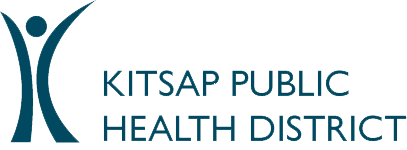Ground cinnamon alert highlights new risks for lead exposure.
- Kitsap Public Health District is encouraging Kitsap County healthcare providers to increase blood lead level testing and educate patients about lead exposure risks to prevent severe health impacts, especially among young children. Children should be screened for lead exposure at 12 and 24 months.
- Product testing by the FDA and other agencies has detected new lead exposure risks in food, toys, and household items. This fall, the FDA expanded a public health alert for some brands of ground cinnamon, due to unsafe levels of lead.
- The rate of lead level screening for young children is low in Kitsap County. The Health District is encouraging healthcare providers to increase screening and has established a Blood Lead Level Case Management Team to support healthcare providers and households when high lead levels are detected.
ACTIONS REQUESTED
ADVISE PATIENTS TO:
- Stop using and dispose of the ground cinnamon products listed in this table, including certain Supreme Tradition brand cinnamon sold at Dollar Tree stores.
- Get tested for lead if they have been exposed to products containing lead. Most people have no obvious immediate symptoms of lead exposure.
- People who have lead exposure symptoms should contact their healthcare provider to report symptoms and receive care. Complaints and adverse events (illness or serious allergic reaction) can be reported to FDA Industry and Consumer Assistance.
CONSIDER TESTING children for lead exposure from these and other sources. If you believe one of your patients is at high risk for lead exposure, a venous blood draw is the most accurate form of specimen collection.
- The Washington State Department of Health recommends that all children be screened for lead at 12 and 24 months of age. Federal regulation requires that all children enrolled in Medicaid receive a blood lead test at 12 and 24 months of age, or at 24 to 72 months of age if no record of a previous test exists.
- Follow-up testing: Recommended follow-up testing depends on the child’s blood lead level.
- <5 µg/dL: Repeat the test in 12 months if the child is at high risk
- 5-14 µg/dL: Repeat the test in 1-3 months to ensure the level is not rising
- 15-44 µg/dL: Repeat the test in 1-4 weeks to confirm the level
LEAD TEST REPORTING AND CASE MANAGEMENT:
- Laboratories are required to report blood lead test results to the Washington State Department of Health (WAC 246-101). Blood lead levels of 5 micrograms per deciliter or higher must be reported to the Department of Health within two business days by the laboratory.
- Kitsap Public Health District nurses provide surveillance of these test results in the Washington Disease Reporting System (WDRS).
- A KPHD Blood Lead Level Team, consisting of public health nurses and environmental health specialists, collaborates with local healthcare providers and provides guidance and case management to Kitsap families with the capacity for environmental testing if needed.
CONTACTING THE HEALTH DISTRICT
- Call: 360-728-2235 and leave a message. Includes reporting notifiable conditions 24 hours a day, 7 days a week. Leave the patient’s name, date of birth and disease.
- Fax: 360-813-1168.
This advisory is also posted on the health advisory page of our Provider Resources website, providers.kitsappublichealth.org.
